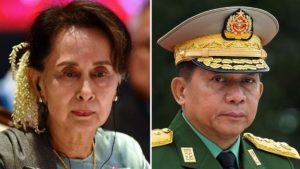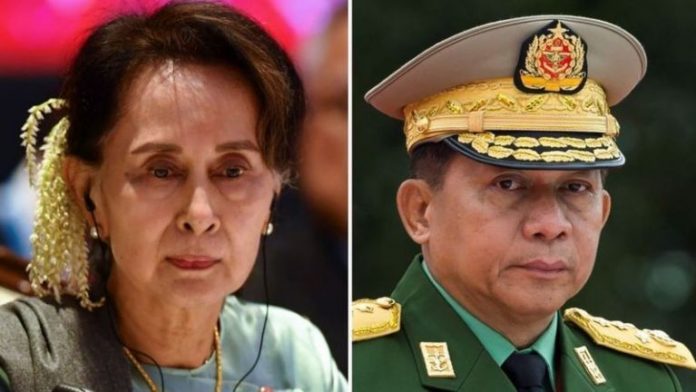A military spokesperson remarked at a recent news conference that a coup could not take place without resolving electoral disputes. What can be made from this comment?

The military is determined to justify their actions on February 1, as being ‘legal’ insofar as their declaration of a State of Emergency is rationalized within the confines of a narrow reading of a section of the 2008 Constitution — a document the military wrote.
A Constitution that ensured the military controls much of the government and the future direction of the country.
But is this really a case of following the law, when the constitution has been designed in such an undemocratic and one sided manner?
If following the ‘law’, in this case leads to more harm than good, then perhaps the ‘law’ should not be followed, and from that does it not follow that a flawed constitution should be repealed?
There is an ironic precedent in Myanmar’s history.
Myanmar’s first constitution was adopted by constituent assembly and was enacted for the Union of Burma in 1947. After the 1962 Burmese coup d’état, a second constitution was enacted in 1974. Upon taking power in September 1988, the military based State Law and Order Restoration Council (SLORC) suspended the 1974 constitution.
The country has since been ruled by military juntas for most of its history, with significant consequences for the people of Burma. Prior to embarking on the path towards a more just democratic path, the country’s economy was the least developed in the region.
Because of the long standing history of military rule, our country is host to the longest running civil war in modern human history.
Following the declaration of a state of emergency on February 1, of this year, tanks and militarized vehicles arrived on the roads of Yangon, Mandalay and Sagaing. Almost immediately and every day since, a growing number of people of Myanmar have also taken to the streets to voice their criticism of the actions of the military.
More than 45 member countries and observer states of the United Nations have called for a special session to address the human rights implications of the current political crisis.
There is a growing call from inside the country and from many in the global community to show leadership, to adhere to democratic norms, and to respect the will of the people as expressed in the 2020 general election results.
Before things get any worse, it is time for the Commander-in-Chief of the Armed Forces to meet with the State Counselor, ethnic political parties and ethnic armed organizations to advance peaceful solutions, and national reconciliation to the current political crisis.

